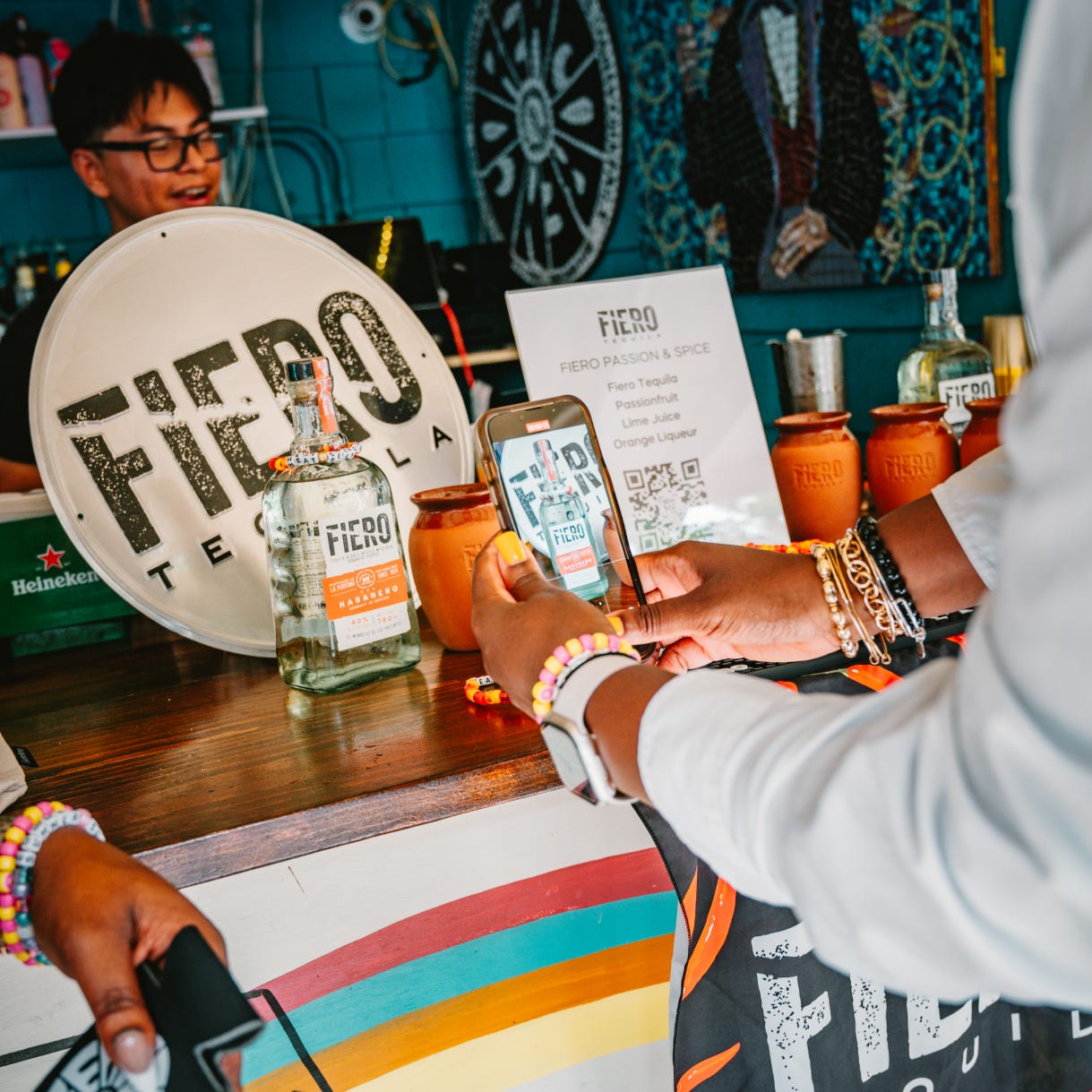Alcohol and blockchain: a match made in heaven?
The world's oldest and newest industries collide.
This is the 2nd weekly issue of GLASS’s Substack, which covers the intersection of alcohol and new technologies. Last week we shared our 2024 predictions here. Want to learn more? Check out GLASS, where we’re reinventing beverage marketing, or send me a note on LinkedIn.
Let’s take things back to first principles.
What does blockchain do best?
Securely manage data
Enable transparency & audit trails
Automatically execute transactions
Create digital tokens that represent individual assets, rights, or fractionalized ownership
Overall, blockchain creates safe, secure, transparent data bridges between parties in decentralized networks.
And the $1.6 trillion alcohol industry is a massive, decentralized network - particularly in the $280B US market.
Think about the wide range of places you buy drinks: liquor stores, grocery stores, bars, restaurants, stadiums, music halls, convenience stores. Your office might have a beer tap; your hair salon might offer you champagne. Airlines serve cocktails, as do high-end gyms.
This is a scattered array of offline points of sale. Further, just 4-6% of drink sales are online, vs. 10-12% of total grocery sales.
Brands have limited visibility. In the US, brands aren’t even able to deliver their products directly to these venues - under the 3-tier system, a Prohibition-era law, alcohol brands are only allowed to sell to distributors (the 2nd tier) who then must sell to retailers (the 3rd tier) before the product reaches consumers.
Of course, each retailer may have its own inventory management system, and brands generally know how much is being sold. But, they have no way to know when the same beer-lover, for example, orders a Heineken at the bar, picks up a 6-pack of Heineken at their corner store, and then gets Heineken delivered for their party via Drizly. Even credit card data platforms capture retailer-level data, not product data.
Between alcohol brands, and alcohol consumers, there’s a massive amount of data being created and instantly lost. Between a single alcohol brand, and a single consumer, lies a whole world of distributors, delivery services, and venues.
Welcome to the blockchain.
Across all these points of sale, the most efficient way to understand behavior is to connect with the consumer themselves. To form a sustained, digital connection with that consumer that can register activity no matter where the consumer is.
Blockchain can power these connections through:
Tokens that create sustained, opt-in connections between consumers and brands, no matter where the consumer is
Blockchain-based proofs (called zero-knowledge proofs) that give consumers new ways to prove purchases and engagement across bars, retailers, restaurants, e-commerce, and beyond, without
Blockchain-based proofs that give consumers new ways to prove compliance (e.g. verify they’re 21+) without sharing their exact age or ID
Smart contracts that automatically execute rewards based on consumers’ activity across channels and fragmented retailers
Decentralized networks of brands, distributors, and retailers, enabling these parties to collaborate on rewards for consumers without violating the 3-tier system (i.e., without brands driving value directly to the retailers)
Transparent audit trails of compliance to complex alcohol regulations (age restrictions, marketing restrictions, limits on discounts and promotions)
What does this all look like? A future with less friction, more data, more consumer rewards, and more glasses raised around the world.
Alcohol brands desperately need to build consumer connections.
Blockchain platforms and investors are seeking real-world use cases.
There’s massive value ($1.6 trillion!) in bringing this ancient industry and this new technology together.
We’re working on some of these challenges with GLASS, a blockchain-based platform enabling brands to reach & reward their consumers in a safe, data-driven way. Check out our beta here or send me a note to learn more.
And tune back in next week, when we’ll be diving deeper into the alcohol industry’s data challenges and the rising impact of AI.



